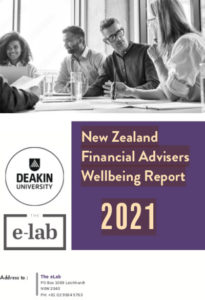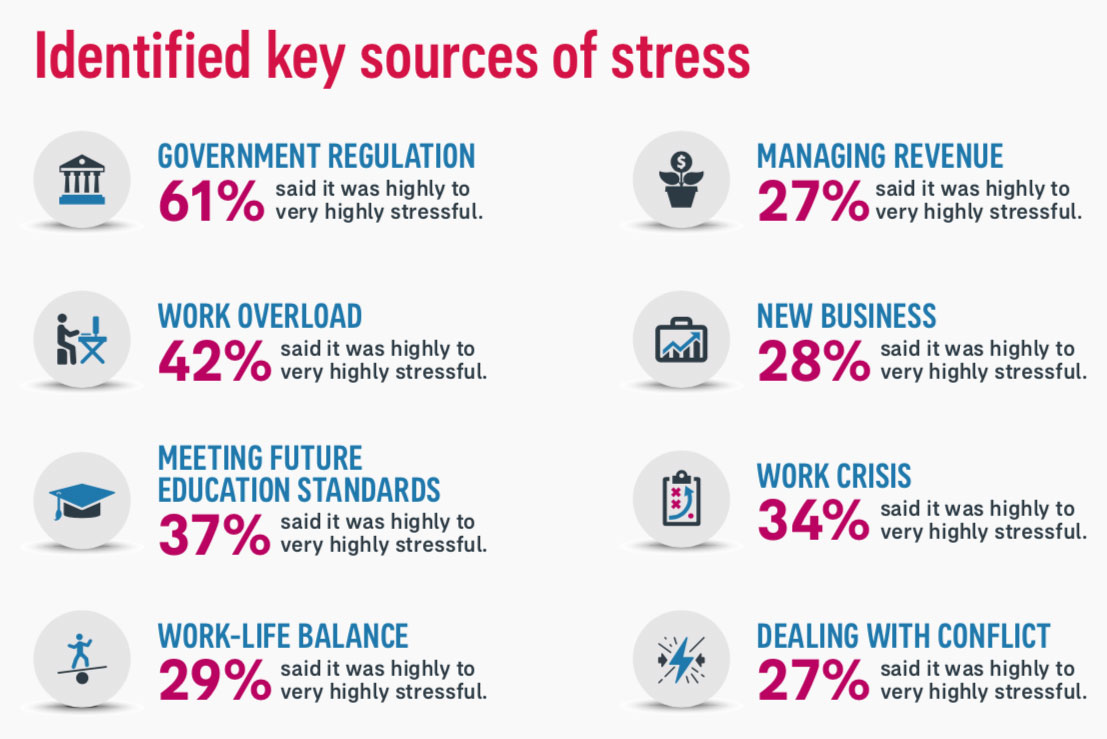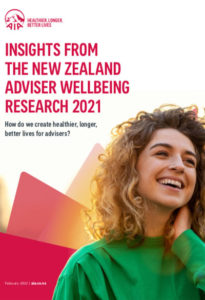Research on the mental health of financial advisers reveals a range of concerning findings says AIA NZ. Among them is that a quarter of all advisers are thinking of leaving their job and more than half (61%) of those surveyed blame Government regulations for increased levels of stress.
Work on the survey started in September last year when the insurer hired Dr Adam Fraser, founder of The e-lab, and Dr John Molineux from Australia’s Deakin University to repeat a survey the pair had carried out for AIA Australia.
AIA NZ’s Acting CEO Sharron Botica says there has been a lot of change across the industry and wanted to understand the challenges experienced by financial advisers, “…particularly in light of operating in a global pandemic, increased regulation, and changing client needs”.
Among the 592 participants who took part in the New Zealand survey were financial advisers, business owners, home loan advisers, investment advisers, risk advisers, sole trader advisers, and general advisers, aged 18 to 60-plus.
Among the key findings are that:
- 20% of those surveyed are seeking or have sought medical care for stress
- 44% believe stress is impacting their sleep
- 15% have been warned by their doctor about suffering a stroke
- 25% are preparing to take stress leave
Asked if they would leave their job due to high work pressure and/or stress, 9.6% strongly agreed and 15.8% somewhat agreed (25.4%). Researchers say this could mean advisers leaving one firm to join another, or leaving the industry. However, 83% of respondents indicated they wanted to continue working in the sector.
Researchers also found half of advisers are working 35 to 40 hours a week or less, with 67% saying they are doing a good job of balancing their work and personal life. In addition, 44% of advisers say their ‘personal time is their own’ – meaning 66% have their free time interrupted.

The report says most advisers rated their interest and enjoyment in their job as 8 out of 10.
In terms of how the demographics affected the results…:
- People with higher education levels practiced more self-care
- Older advisers had greater work-family balance, and better mental health
- Advisers in their 30s and 40s have the highest perceived workload
- Advisers working above 50 hours a week scored worst when it came to work-life balance
- Those who work less than 19 hours scored worst on wellbeing, flexibility, psychological capital, and self-development
When it came to gender, women scored lower than men in terms of work/family balance and boundary strength, while they scored higher in terms of work overload, stress and stressful issues.
However, women also scored higher in terms of self-development and engaging in industry support.

The report’s authors write that advisers with highly engaged clients are more likely to score high in work-family balance, flow, recovery at work and home, wellbeing, adaptive performance, mental health, and engaging in industry support.
When it comes to regulatory bodies such as the FMA, the report’s authors say:
- Regulators should partner with the industry to ensure future changes are developed jointly, with clear benefits to clients and the industry
- Significant [regulatory] changes were made in Australia without sufficient consideration of the consequences for the financial services industry and its client base. New Zealand regulators should take a look at the Australian market to avoid any similar issues
- We encourage regulators to continue to work with advisers and relevant industry bodies to create future strategies

Botica says the researchers’ findings provide a clear warning of the risks Kiwi advisers face if the issues and challenges highlighted by the report are not addressed.
“We want to encourage discussion and collaboration within the adviser market, the wider financial services industry, and with policymakers,” she says.
“Our goal as an industry needs to focus on supporting our advisers, improving their overall wellbeing, and creating a safe and supportive industry.”
The reports authors recommend the following for the financial advice industry:
- Ensure advisers have support in completing Level 5 qualifications
- Provide an industry-wide mentoring programme
- Provide access to targeted wellbeing support
- Provide industry counsellors
- Provide access to training in psychological flexibility, encouraging recovery and mindfulness practices
- Provide development programs aimed at improving adaptive and innovative skills
There are two PDFs you can download:
